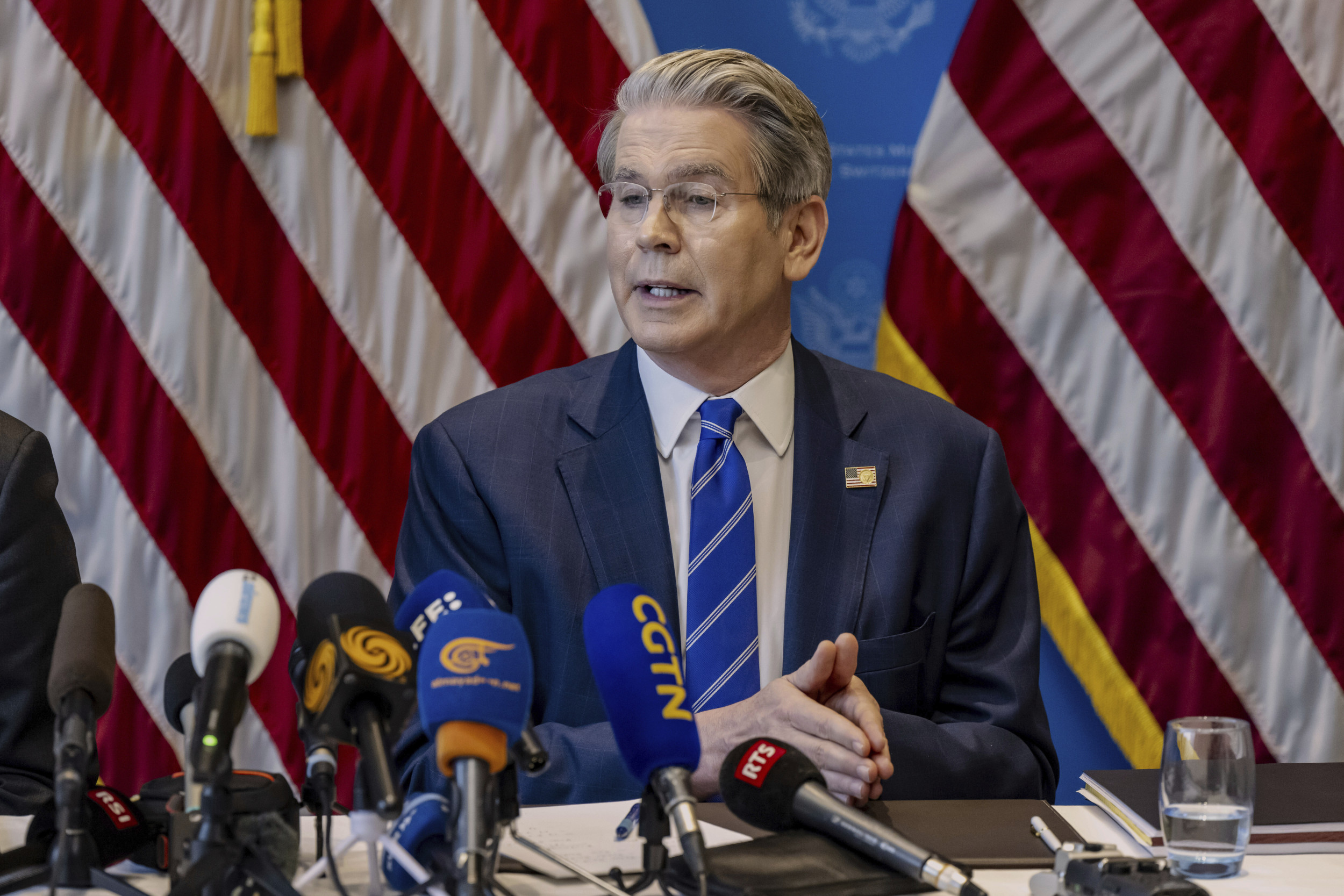
U.S. Treasury Secretary Scott Bessent warned during a Sunday appearance on NBC News’ Meet the Press that countries failing to negotiate in “good faith” with the United States could face a return to reciprocal tariff levels that were unveiled on “Liberation Day” on April 2.
Newsweek has reached out to the U.S. Department of the Treasury’s press team for comment via email on Sunday.
Why It Matters
Bessent’s tariff comments come after the U.S. and China agreed to pause their reciprocal tariffs for 90 days last week, with both sides bringing their rates down by 115 percentage points. This agreement reduced the tariffs imposed on Chinese goods by President Donald Trump to 30 percent, and those imposed on U.S. goods by Beijing to 10 percent. The two power economies are continuing negotiations during this pause.
On April 2, Trump announced a series of sweeping global tariffs, including a baseline 10 percent on all imported goods and the widely anticipated “reciprocal” tariffs. Their implementation led the stock markets to drop drastically, with Wall Street posting its worst losses since 2020 and trillions of dollars in value erased.
Shortly after the “reciprocal” tariffs went into effect in April, Trump paused most of them for 90 days, which sent the markets surging. Notably, he did not delay tariffs on China then.
Economists and experts have warned that Trump’s tariffs, which are effectively a tax imposed on imported goods, will inevitably increase costs for Americans. Trump has defended his policies saying the tariffs will cause “some little pain” upfront but in the long term will be “worth the price that must be paid.”
What To Know
Speaking to Meet the Press host Kristen Welker on Sunday, Bessent said that neither China nor the U.S. “backed down” during negotiations, but rather both realized the tit-for-tat tariff war was “unsustainable.”
He added that the countries “now have a mechanism in place to continue talks,” but didn’t expand on what that looks like.
Welker then inquired about Trump’s recent remarks indicating that countries should expect a letter from Bessent about their respective tariff rate, asking, “Does that effectively mean that these negotiations with other countries are over, and how high should they expect tariffs to go above 10 percent?”
The treasury secretary replied: “This means if they’re not negotiating in good faith, they are going to get a letter saying, here is the rate. So, I would expect that everyone would come and negotiate in good faith.”
Welker pressed Bessent if he expects that rate to be above 10 percent, to which he said, “Well, I think that it would be the April 2 level. Some countries were at 10 percent; some were substantially higher.”
He added: “If you don’t want to negotiate, then it will spring back to the April 2 level.”
The “Liberation Day” tariffs included a baseline 10 percent tariff on all imports, and then a range of reciprocal tariffs across countries, which notably included heavy levies on Asian countries, with Cambodia hit with 49 percent and Vietnam at 46 percent. Trump has maintained that the level of reciprocal tariff is an effort to combat trade imbalances and deficits.
Recently, retailers, including Walmart, have announced they will increase prices due to the “magnitude of the tariffs.” Trump warned Walmart against the move on Saturday, writing on Truth Social that the retail giant should “stop trying to blame tariffs as the reason for rising prices.”
Jean-Christophe Bott/Keystone vía AP
What People Are Saying
President Donald Trump said in a Saturday Truth Social post: “Walmart should STOP trying to blame Tariffs as the reason for raising prices throughout the chain. Walmart made BILLIONS OF DOLLARS last year, far more than expected. Between Walmart and China they should, as is said, ‘EAT THE TARIFFS,’ and not charge valued customers ANYTHING. I’ll be watching, and so will your customers!!!”
China’s Commerce Ministry said last week in a statement: “To implement the consensus reached during the China-U.S. Geneva trade talks, effective May 14, 2025, the measures announced on April 4…and April 9…will be suspended for 90 days.
It added: “According to the regulations, during the suspension period, domestic enterprises may apply to resume transactions with these entities, and the Unreliable Entity List mechanism will approve applications that meet the conditions.”
BlackRock CEO Larry Fink, at the Saudi-U.S. Investment Forum on Tuesday, said: “Yes, we’re going to have volatility in the next 90 days, but the big thing that I’ll be watching: Are we going to be able to see in every economy the opportunity for more active private investments.”
Gina Bolvin, president of Bolvin Wealth Management said of the U.S.-China agreement: “A win for stocks and a win for investors is a win for Trump because it shows optimism that we are closer to closer to closing a tariffs deal with China because they’ve come to the table. For any president, the stock market is a barometer of success. And while we can certainly say this volatility was self-inflicted, a trade deal with China is good for America.”
What Happens Next?
Negotiations between the U.S. and various countries regarding trade deals and tariff rates are currently ongoing.
